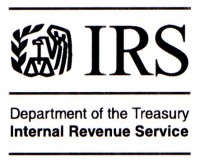With tax season fast approaching the IRS would like to ensure you have the best information available to make informed decisions on tax matters as you prepare your 2010 income tax returns.
 Be aware of e-mail scams that fraudulently use the IRS name or Logo as a lure. The goal of the scam is to trick people into revealing personal and financial information, such as a Social Security Number or bank account and credit card numbers. The scammers can use this stolen information to commit identity theft and steal your money.
Be aware of e-mail scams that fraudulently use the IRS name or Logo as a lure. The goal of the scam is to trick people into revealing personal and financial information, such as a Social Security Number or bank account and credit card numbers. The scammers can use this stolen information to commit identity theft and steal your money.
The IRS does not ever send unsolicited e-mails about a person’s tax account or ask for detailed personal and financial information via e-mail. Additionally, the IRS never asks people for the PIN numbers, passwords or similar secret access information for their credit card, bank or other financial accounts.
If you receive an e-mail from someone claiming to be the IRS or directing you to what appears to be an IRS Web site:
- Do not open attachments or click on links. Accessing attachments or links may allow malicious code to infect your computer and may allow the scammers access to your private information.
- Do not give out any information. If you clicked on a link in a suspicious e-mail or phishing Web site and entered confidential information, visit our Identity Theft page on IRS.gov.
You can help shut down these schemes and prevent others from being victimized. If you receive a suspicious e-mail that claims to come from the IRS, you can forward that e-mail to a special IRS mailbox, phishing@irs.gov. The e-mail must be forwarded using special instructions at IRS.gov, or it loses the encoding needed to track it to its source. The IRS can use the information, URLs and links in the suspicious e-mails you forward to trace the hosting Web site and alert authorities to help shut down the fraudulent sites. After you forward the scam e-mail to IRS, delete it.
Remember that all of the web page addresses for the official IRS website, IRS.gov, begin with http://www.irs.gov/. Don’t be confused or misled by internet sites that end in .com, .net, .org or other designations instead of .gov. The address of the official IRS governmental Web site is www.irs.gov.
Ten things the IRS wants you to know about identity theft
- If you receive a letter or notice from the IRS which leads you to believe someone may have fraudulently used your Social Security Number (SSN), respond immediately to the name and address or phone number printed on the IRS notice.
- If you receive a letter from the IRS that indicates more than one tax return was filed for you, this may be a sign that your SSN was used fraudulently.
- Another sign that you may be the target of identity theft is an IRS letter indicating you received wages from an employer unknown to you.
- The IRS has a department which deals specifically with identity theft issues. The IRS Identity Protection Specialized Unit is available if you have been in contact with the IRS about an identity theft issue and have not achieved a resolution.
- You can contact the IRS Identity Protection Specialized Unit by calling the Identity Theft Hotline at 800-908-4490.
- The IRS Identity Protection Specialized Unit is also available if you believe your identity may be at risk of being stolen due to a lost or stolen purse or wallet or due to questionable activity on your credit card or your credit report.
- The IRS never initiates communication with taxpayers about their tax account through email. If you receive an e-mail or find a Web site you think is pretending to be the IRS, forward the e-mail or Web site URL to the IRS at phishing@irs.gov.
- The IRS has many more resources available to help inform taxpayers about identity theft on the IRS Web site at IRS.gov. On IRS.gov you can access information on how to report scams and bogus IRS Web sites. You can also visit the IRS Identity Theft Resource Page, which you can find by typing Identity Theft Resource Page in the search box on the IRS.gov home page.
- The Federal Trade Commission is also available to assist taxpayers with identity theft issues. You can reach them toll-free at 877-ID-THEFT (877-438-4338).
- Visit OnGuardOnline.gov for protection tips from the federal government and the technology industry.


